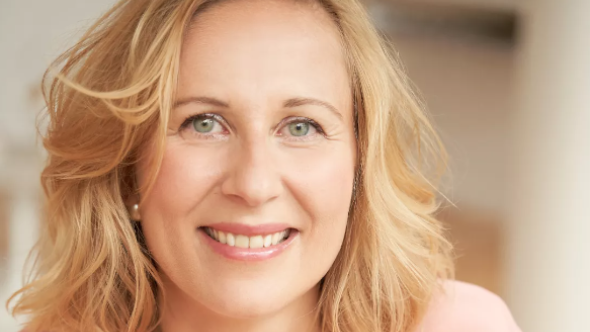Omalius: Why did you decide to study economics?
Marianne Collin: At the time, I didn't really know what I wanted to do. So I started out on a fairly generalist course that could give me access to either banking or politics. But at the time, I didn't have a career plan at all. I started off in the computer science section, to avoid the whole literary thing... I was more of a mathematician. But after taking Mr. Jaumotte's general economics course in première candi, I really developed an interest in pure economics, public economics and economic policy. That's why I went into pure macroeconomics, monetary policy and international trade, rather than management science in the second half of my course. Even before I finished my studies, I had decided that I would go and work at the National Bank, an institution where there is a lot of talk, precisely, about monetary policy.
.
O. What do you make of the fact that you are often presented as "the first woman" to join the Belfius Management Board, i.e. as an exception in a sector where most positions of responsibility are still held by men?
M.C.: First of all, I'm not a feminist at all. I've never felt held back in my career because I was a woman. After that, when I look around me, it's true that there are fewer women at high levels of responsibility, and we're working at Belfius on quantified targets - I don't really like the word "quotas" - concerning the commitment of women to eventually achieve parity. I realize that if we want more women, we have to help them, because there's one thing that makes us different from men: we only apply for a position when we're perfect for it. If Marc Raisière hadn't pushed me, I'd never be where I am, because I wouldn't have felt capable... So I've been lucky enough in my career to be accompanied by exceptional men, who don't differentiate between men and women. And who, on the contrary, believe that women make an enormous contribution to the collective intelligence of management committees.
.
O. In what sense, then, do you emphasize that you're not a feminist at all?
M.C.: In the sense that I'll never defend a woman if she's not competent. At Belfius, with equal skills, today we'll put a woman ahead because we need to restore a balance, but we have to be careful that this doesn't become a goal in itself. That would put women at a disadvantage in the long run. For me, the battle is not "women, women", but a complementarity of functions and profiles. I think we need to think more broadly.
O. What skills and qualities are required for the position of "risk manager" in the banking sector?
M.C.: This requires quite heuristic skills. As a risk manager, I need to have a view of the economic environment, economic projections, rates... I'm also responsible for non-financial risks, which requires a good understanding of the risks we take when we develop new projects or strategies, but also what the external risks are, in terms of cyberfrauds in particular. It also requires human skills: I manage 250 to 300 people, and when it comes to risk, these are not always easy profiles... They are often "blue" profiles: very precise, who work in silos, also very loyal, and who today need to work fast, in collaboration with younger, more agile profiles.
O. A job that makes sense to you?
M.C.: The banking sector is often criticized in the press, but we have an extremely important societal role, whether it's because we finance the dreams of individuals or because we support the energy transition. It's not the markets that are going to finance hydrogen or building renovation. The banking profession may seem boring from the outside, but I find it beautiful. At Belfius, we take a very human approach. During the Covid crisis, for example, we called our customers to see if they needed us. Although I'm not saying we're perfect: we have things to improve on, such as branch accessibility, etc. But this human approach is the key to our success. But this human approach is what sets us apart from the rest.
O. What memories do you have of your studies at UNamur?
M.C.: A great memory in fact. I have a little girl and I hope she studies at UNamur one day! Firstly in human terms, with some very nice teachers, and above all in terms of friends. Today, my friends from unif are still my best friends and we're godparents to each other's children, we go on vacation together... We've all come from very different backgrounds, but the friendships I made during my studies have lasted. That's what's closest to my heart.
His background
- 2003 Master's degree in economics from UNamur
- 2004 Master's degree in financial economics from KUL
- 2004-2016 National Bank of Belgium
- 2017 Belfius
- 2019 Member of the Belfius Management Committee as Chief risk officer
This article is taken from the "Alumni" section of Omalius magazine #32 (March 2024).
